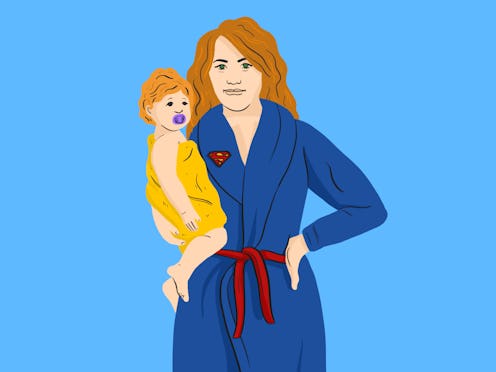
We already know that some cities in the U.S. are better for working women than others, so it shouldn’t come as a surprise that the same is true—and perhaps even more so—for working moms. Using data from the U.S. Census Bureau, the U.S. Bureau of Labor Statistics, the U.S. Equal Employment Opportunity Commission, and a number of other sources, WalletHub did a little number crunching to find out exactly which states are working mom-friendly and which ones aren’t.
In order to rank each state, WalletHub used nine metrics that fell under three categories: Child Care consisted of Day Care Quality, Child Care Costs (adjusted for the median woman’s salary), Access to Pediatric Services (number of pediatricians per 100,000 residents), and Public School Quality; Professional Opportunities was made up of Gender Pay Gap and Ratio of Female to Male Executives; and Work-Life Balance depended on Parental Leave Policy, Length of the Average Woman’s Workday, and Average Commute Time. Each state was rated on these nine metrics, which were then used to create the overall rankings.
And the number one state for working moms is… Oregon! With a Child Care rank of 15, a Professional Opportunities rank of 10, and a Work-Life Balance rank of one, it’s the most working mom-friendly state in the country. Washington D.C., Vermont, and Maine are all close behind; Democratic states were generally found to be better for working moms than Republican ones:
Meanwhile, the bottom 10 states ranked poorly in all three categories. Pennsylvania’s scores of 43 for Child Care, 22 for Professional Opportunities, and 24 for Work-Life Balance were the least bad of the lot; Louisiana, meanwhile, scored a whopping 50 in both Child Care and Professional Opportunities and 35 for Work-Life Balance:
As The Atlantic points out, equal pay isn’t the only problem that working mothers face in America; early childhood development and flexibility to be both a mom and a professional are just as important. Interestingly, though, Heidi Stevens at the Chicago Tribune notes that the states with inaccessible pediatricians and less-than-stellar child care are “a lousy set-up for dads, too” — that is, they’re working family issues, not just working mom issues. I think WalletHub is getting at, though, is how those general family issues fit in with how women are treated in the workplace. The fact of the matter is that women generally have fewer professional opportunities than men; they also tend to bring home less money with each paycheck. Those opportunities for advancement might be the difference between being able to get awesome child care and being able to get so-so child care. That’s not to say that dads automatically make more or have an easier time of raising their kids; however, the odds are stacked a little more in their favor.
Want to know more? Head on over to WalletHub for a look at the full listing, what the top scorers were for each category and metric, and more.
Image: Claire Joines/Bustle